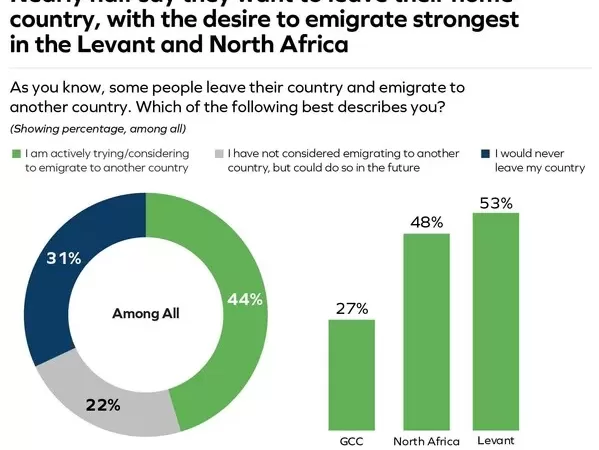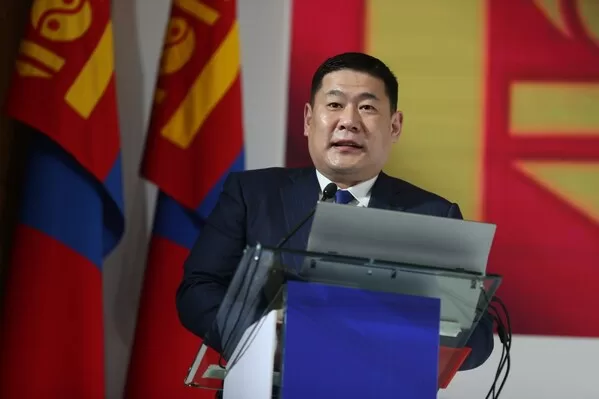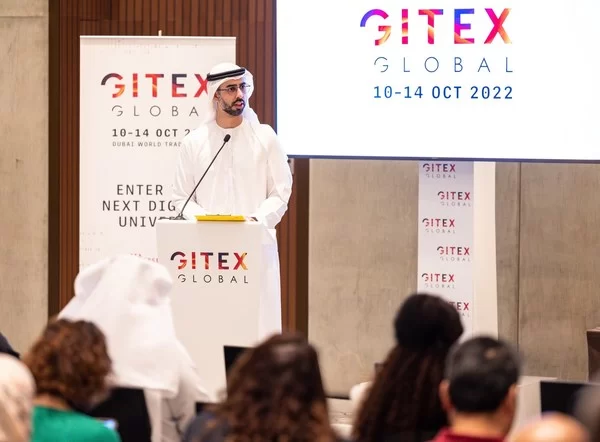The new report from the GSMA, published at its Indonesia Digital Nations Summit in Jakarta, evaluates Indonesia’s progress to becoming a digital…
Amid record youth unemployment, over half of Arab youth in the Levant and North Africa want to emigrate for better opportunities: 15th annual ASDA’A BCW Arab Youth Survey
DUBAI, UAE, Aug. 9, 2023 — Over half of Arab youth in the Levantine and North African countries say they are actively trying to leave or are considering leaving…
New partnerships and pro-investment reforms announced as tenth Mongolia Economic Forum takes place in Ulaanbaatar
ULAANBAATAR, Mongolia, July 13, 2023 — The tenth Mongolia Economic Forum (MEF) continues in Ulaanbaatar today amidst the announcement by the Government of two new bodies to support investment…
Q1 2023 Global Semiconductor Equipment Billings Grow 9% Year-Over-Year, SEMI Reports
MILPITAS, Calif., June 7, 2023 — Global semiconductor equipment billings increased 9% year-over-year to US$26.8 billion in the first quarter of 2023, SEMI…
Dialogue eyes key role of youth in RCEP region’s growth
BEIJING, Dec. 24, 2022 — The following article was published today by China Daily. Investing in and empowering young people is vital for members of the Regional Comprehensive Economic…
Meeting of Global Alliance of Leaders in Paris
NUR-SULTAN, Kazakhstan, Dec. 2, 2022 — On November 29, 2022, meeting of Global Alliance of Leaders for Nuclear Security and Nuclear-Weapon-Free World (GAL),…
Global Times: China’s leading role highlighted at APEC
BEIJING, Nov. 19, 2022 — Chinese President Xi Jinping on Thursday delivered a written speech to the Asia-Pacific Economic Cooperation (APEC) CEO Summit held in Bangkok, capital of Thailand,…
China and its Southeast Asian neighbors need to enhance industrial cooperation
BEIJING, Oct. 9, 2022 — By Beijing Review: In 2019, TCL, a Chinese consumer electronics company, began to build its new manufacturing base in Viet Nam. The new base has improved…
GITEX GLOBAL 2022 gathers world’s leaders to challenge and collaborate in the Web 3.0 economy
DUBAI, UAE, Sept. 30, 2022 — Dubai will transform into the ultimate digital epicentre of the world next month, as the UAE hosts GITEX GLOBAL, the world’s largest tech…
Global Metaverse Market Will Unlock $750 Billion Opportunity by 2030
Interoperability between the virtual worlds is crucial to the success of the metaverse, says Frost & Sullivan SAN ANTONIO, July 18, 2022 — The metaverse is anticipated to…












